Oceans
-
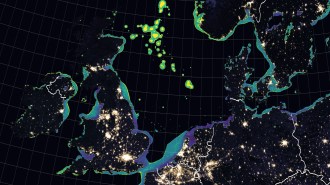 Oceans
OceansEven the sea has light pollution. These new maps show its extent
Coastal cities and offshore development create enough light to potentially alter behavior of tiny organisms dozens of meters below the surface.
-
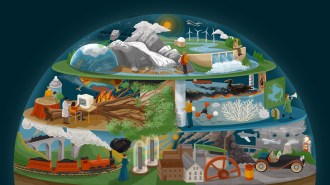 Climate
ClimateHow did we get here? The roots and impacts of the climate crisis
Over the last century and a half, scientists have built a strong case for the roots and impacts of human-caused climate change.
-
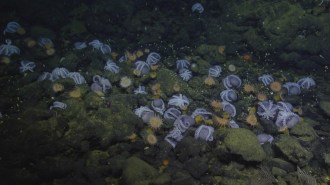 Oceans
OceansSome deep-sea octopuses aren’t the long-haul moms scientists thought they were
Off California’s coast, some octopuses lay eggs in the warmer water of geothermal springs in the “Octopus Garden,” speeding up their development.
-
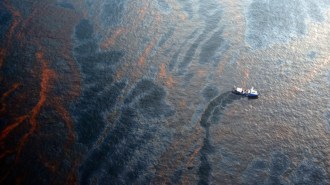 Oceans
OceansSunlight helps clean up oil spills in the ocean more than previously thought
Solar radiation dissolved as much as 17 percent of the surface oil slick spilled after the 2010 Deepwater Horizon explosion, a new study suggests.
-
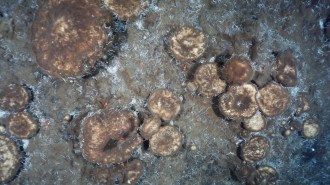 Animals
AnimalsDeep-sea Arctic sponges feed on fossilized organisms to survive
Slow-moving sponges, living deep in the Arctic Ocean where no currents deliver food, scavenge a carpet of long-dead critters.
-
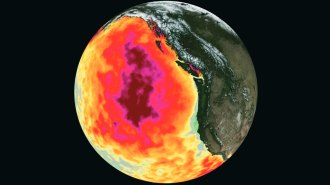 Oceans
OceansThe past’s extreme ocean heat waves are now the new normal
Marine heat waves that were rare more than a century ago now routinely occur in more than half of global ocean, suggesting we’ve hit a “point of no return.”
-
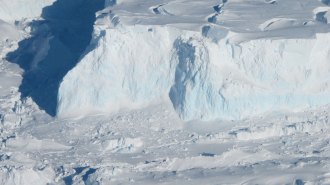 Climate
ClimateAntarctica’s Thwaites Glacier ice shelf could collapse within five years
The loss of Thwaites’ buttressing ice shelf could hasten the demise of the “Doomsday Glacier” and raise the risk of dramatic sea level rise.
-
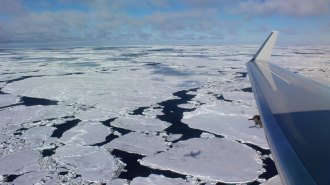 Oceans
OceansThe Southern Ocean is still swallowing large amounts of humans’ carbon dioxide emissions
A 2018 study suggested the ocean surrounding Antarctica might be taking up less CO₂ than thought, but new data suggest it is still a carbon sink.
-
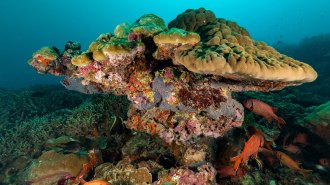 Environment
EnvironmentCorals may store a surprising amount of microplastics in their skeletons
In tropical waters, coral reefs may be a “sink” for tiny bits of plastic debris. It’s unclear how corals’ trash pickup might affect reef health.
-
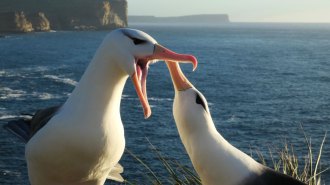 Life
LifeAlbatrosses divorce more often when ocean waters warm
In one part of the Falkland Islands, up to 8 percent of the famously faithful birds ditch partners in years when the ocean is warmer than average.
-
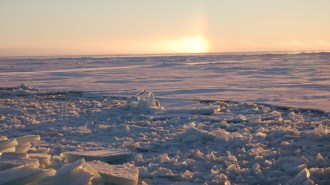 Earth
EarthScientists are racing to save the Last Ice Area, an Arctic Noah’s Ark
The Last Ice Area may be the final refuge for summer sea ice and the creatures that depend on it. Saving it is an ambitious goal with many hurdles.
By Freda Kreier -
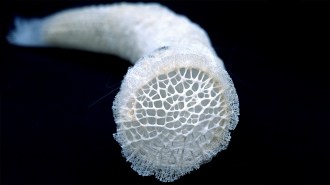 Animals
AnimalsHow intricate Venus’s-flower-baskets manipulate the flow of seawater
Simulations show that a deep-sea glass sponge’s intricate skeleton creates particle-trapping vortices and reduces the stress of rushing water.
By Nikk Ogasa